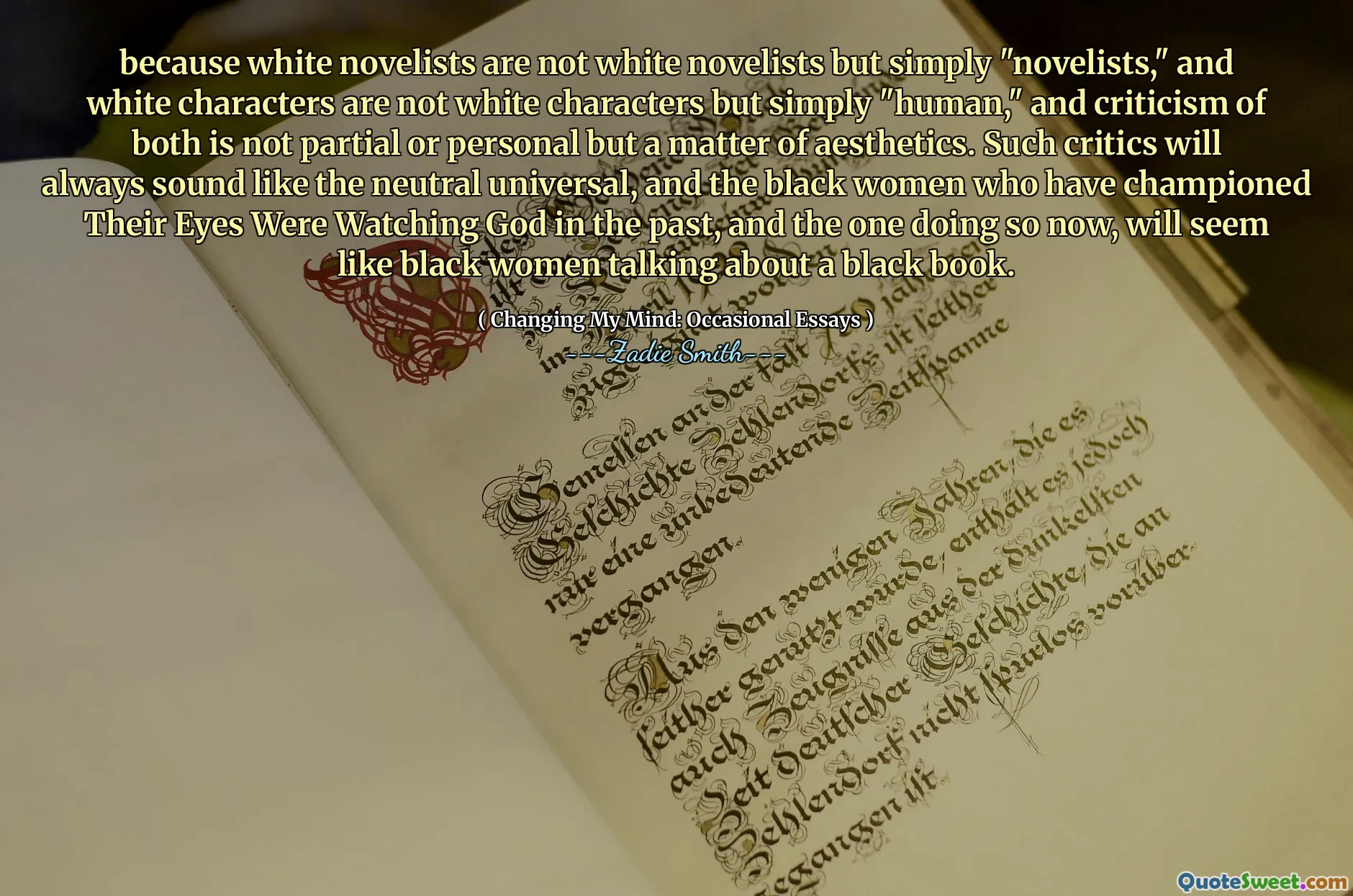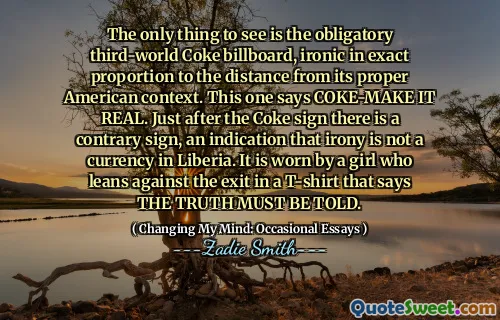
because white novelists are not white novelists but simply "novelists," and white characters are not white characters but simply "human," and criticism of both is not partial or personal but a matter of aesthetics. Such critics will always sound like the neutral universal, and the black women who have championed Their Eyes Were Watching God in the past, and the one doing so now, will seem like black women talking about a black book.
Zadie Smith’s observation deeply interrogates the inherent biases and racial dynamics embedded within literary criticism and the broader cultural understanding of authorship and character representation. This quote challenges the default lens through which society views artistic creation: the 'neutral universal'. In literature, this so-called neutrality is not without prejudice. White novelists and their characters are often perceived as the norm — the essence of 'just being' novelists or human beings in narrative form — whereas writers and characters from other racial backgrounds are relegated to the margins, recognized primarily through the lens of their race. This phenomenon highlights the subtle ways systemic racial bias operates, framing whiteness as the 'unmarked' category, and blackness as something inherently 'other'.
Smith’s reflection unveils the power dynamics of cultural legitimacy; white authors and characters are elevated to the universal standard, making their stories the default for human experience. Critics writing about these works often position themselves as neutral arbiters of aesthetic value, further solidifying this universalist framing. Conversely, Black authors and characters—and by extension, their advocates—are seen through a racialized viewpoint, often speaking solely from the perspective of their identity rather than universal artistic merit. It implicitly suggests that when Black women champion works like Zora Neale Hurston's "Their Eyes Were Watching God," their voices are marginalized as niche or particularistic rather than universal.
This quote forces us to confront uneasy questions about inclusivity and equality in literary fields: How can we dismantle the illusion of neutrality in criticism? What does it mean to center diverse voices genuinely and allow works by marginalized authors to stand as universally significant? The examination reveals how cultural value is not determined objectively but through societal power structures that decide who gets to represent humanity at large. Ultimately, Smith’s insight prompts a reevaluation of how we read, critique, and celebrate literature, demanding an expansion beyond racialized boundaries towards a more equitable understanding of artistry and human experience.







